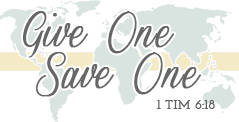Welcome my friend, Kelli, to our blog. She has also offered an awesome giveaway for you! Details at the bottom....
To Wait: to stay in place in expectation of………
Families in process of
international adoption are by my definition, professionals at waiting.
We wait and we wait…… on
paperwork, on waitlists, on calls, on emails, on approval, on clearance. The list feels endless sometimes.
I admit there have been times
in the wait I’ve wanted to lay on the floor like a two year old and kick and
scream. Sometimes it’s just plain
hard.
So much of the time the “wait”
comes with a negative connotation.
It might have a little bit to do with the 200 good intentioned people
that ask us “when?”, “still?”, every week they see us.
I recently posed a question
about “the wait“ to some other adoptive moms & the responses I got were so
beautiful and encouraging.
They said,
“My heartache &
desperation has brought me into a connection with the Lord that is so deep
& intimate I get chills when I think about it”.
“God changed my heart”.
One mom stated she used the wait to enjoy time with her
family before it grew and another recognized how God used the wait to refine
her.
Everyone’s wait looks so
different.
In my personal “wait” journey
(which I never would have predicted would be more than 3 years) I’ve had the
time I’ve needed to heal from the loss of my mom.
Beth Moore said in her study
on Esther, “never in our wait is God inactive”. Although we may grow tired of hearing, “ it’s all God’s timing,” perhaps we
could try to see the wait from a different perspective. Maybe we could let God use
the wait to make us more like Him.
The Bible is so full of
promises for those who wait.
Because of the Lord’s great
love we are not consumed, for his compassions never fail. They are new every
morning; great is your faithfulness.
I will say to myself ”the Lord is my portion; therefore I will wait for
Him”. Lamentations 3:22-24
I’m determined not to waste
the “wait”. How about you?
Check out these other
encouraging verses for your wait:
Isaiah 40:31, Habakkuk 2:30,
Ephesians 3:20, I Peter 5:6-7, Proverbs 16:9, Psalm 37:5, Proverbs 21:30, Matt
19:26 , Isaiah 54:10, I Thes 5:24, Habakkuk 3:17-19, Heb10:23, Isaiah 26:3-4,
Luke 11:9, Proverbs 3:5-6, Psalm 4:8, Psalm 44:3, Psalm 37:7, Rom 15:13, James
1:12, Jeremiah 32:17, Psalm 40:1-3
-Kelli
To enter the giveaway for one of her beautiful photographs, leave a comment with who you would like to have in your picture if you win!
More about my friend...













